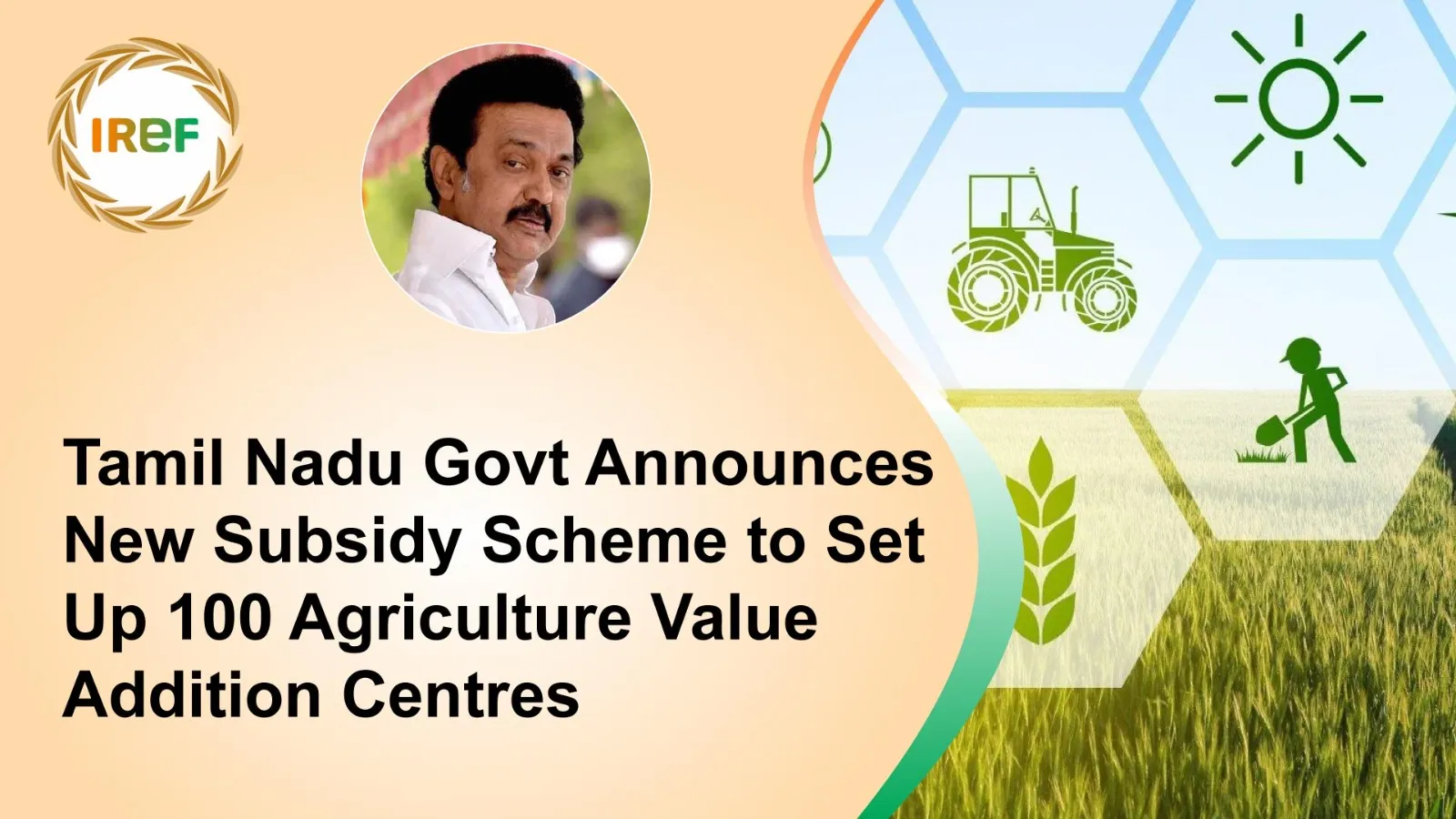Tamil Nadu Govt Announces New Subsidy Scheme to Set Up 100 Agriculture Value Addition Centres

On Wednesday, September 11, the Tamil Nadu government announced a new scheme to support entrepreneurs and companies setting up value-added and processing units for agricultural produce, as outlined in the Agriculture Budget 2025-26. The scheme intends to set up 100 value-addition centres in the State, aligning with Chief Minister Stalin's target of making Tamil Nadu a $1 trillion economy by 2030.
Moreover, the Agriculture and Farmers' Welfare Minister, MRK Panneerselvam, said the scheme is devised to boost the secondary industries in the farming sector.
About Tamil Nadu Govt.'s New Subsidy Scheme
Around 25 per cent investment subsidy will be provided for new projects up to Rs 10 crore by the Tamil Govt. under new Subsidy scheme. In addition, women entrepreneurs, enterprises from backwards areas (as per the MSME department schedule), and those promoted by the Scheduled Castes and Scheduled Tribes will receive an additional 10 per cent subsidy, aggregating 35 per cent.
The maximum subsidy is restricted to Rs 1.5 crore. Notably, all beneficiaries are also eligible for a 5 per cent interest subsidy for five years.
As the conditions of Tamil Nadu govt.'s new Subsidy scheme, Projects should stress secondary or tertiary processing of crops, including tomato, chilli, turmeric, banana, mango, drumstick, jasmine and millets, producing items such as puree, powders, starch, oils, flakes, and snacks. Beneficiaries must contribute around 5 per cent of the project cost, with the balance funded through bank loans.
Applications, supported by bank-approved project reports, will be assessed by District Technical Committees and the State Level Project Approval Committee. Interestingly, the subsidy will be released in two instalments-60 per cent initially and 40 per cent later. Significantly, Beneficiaries of earlier State or Union schemes are also eligible, subject to subsidy limits.